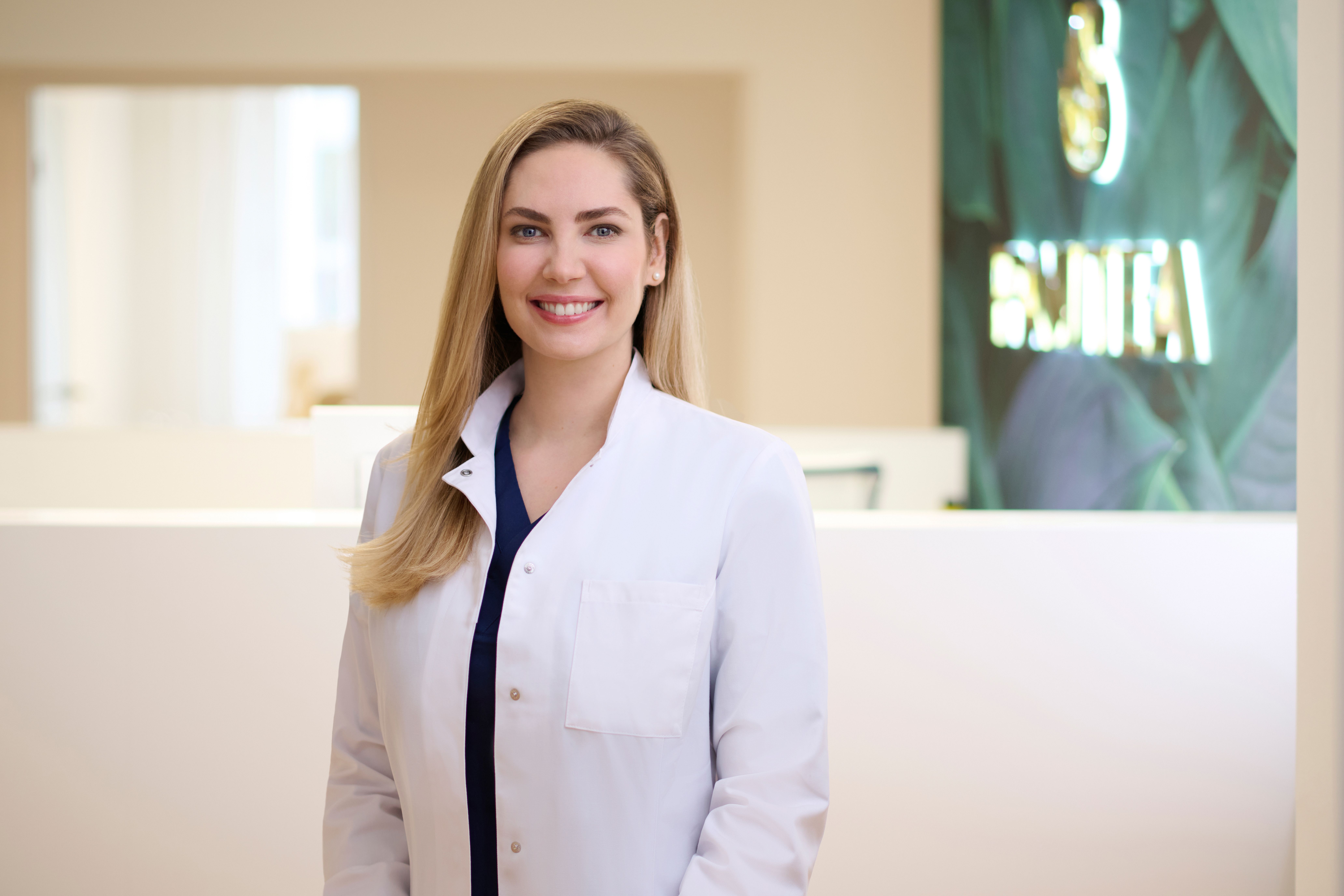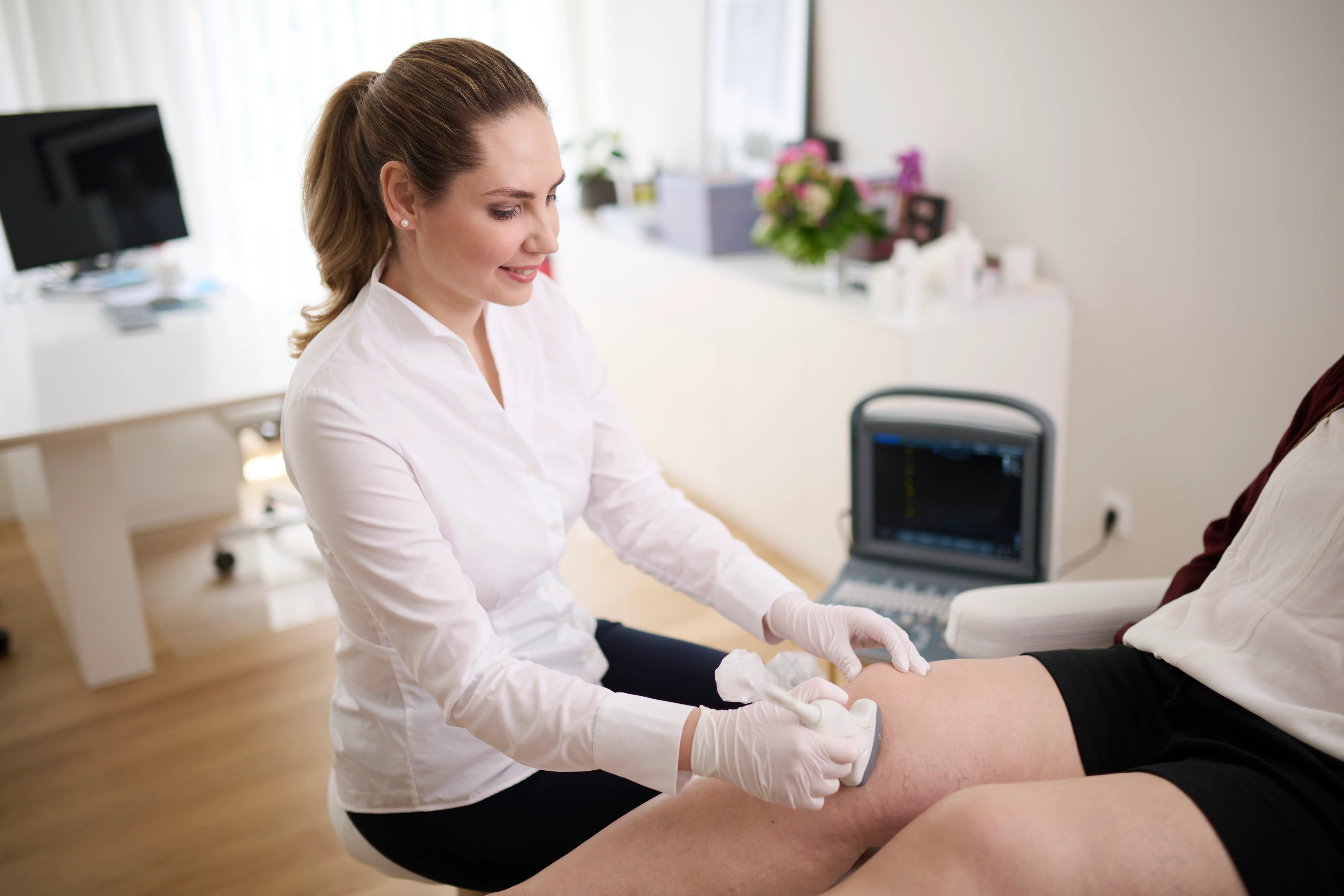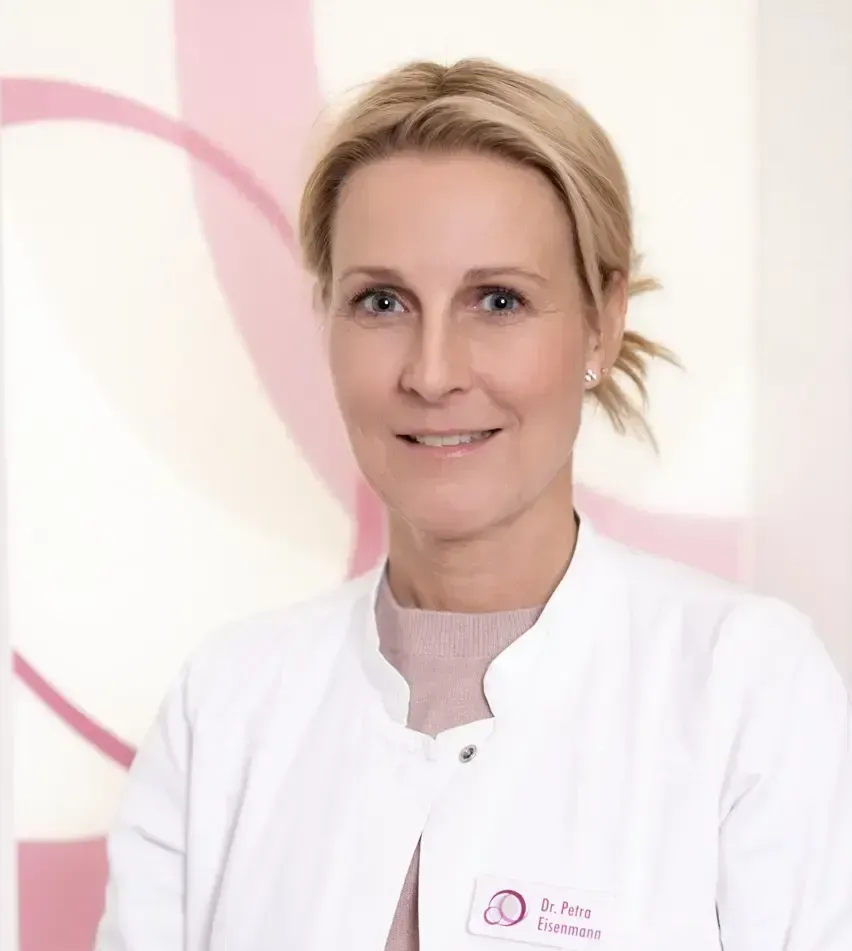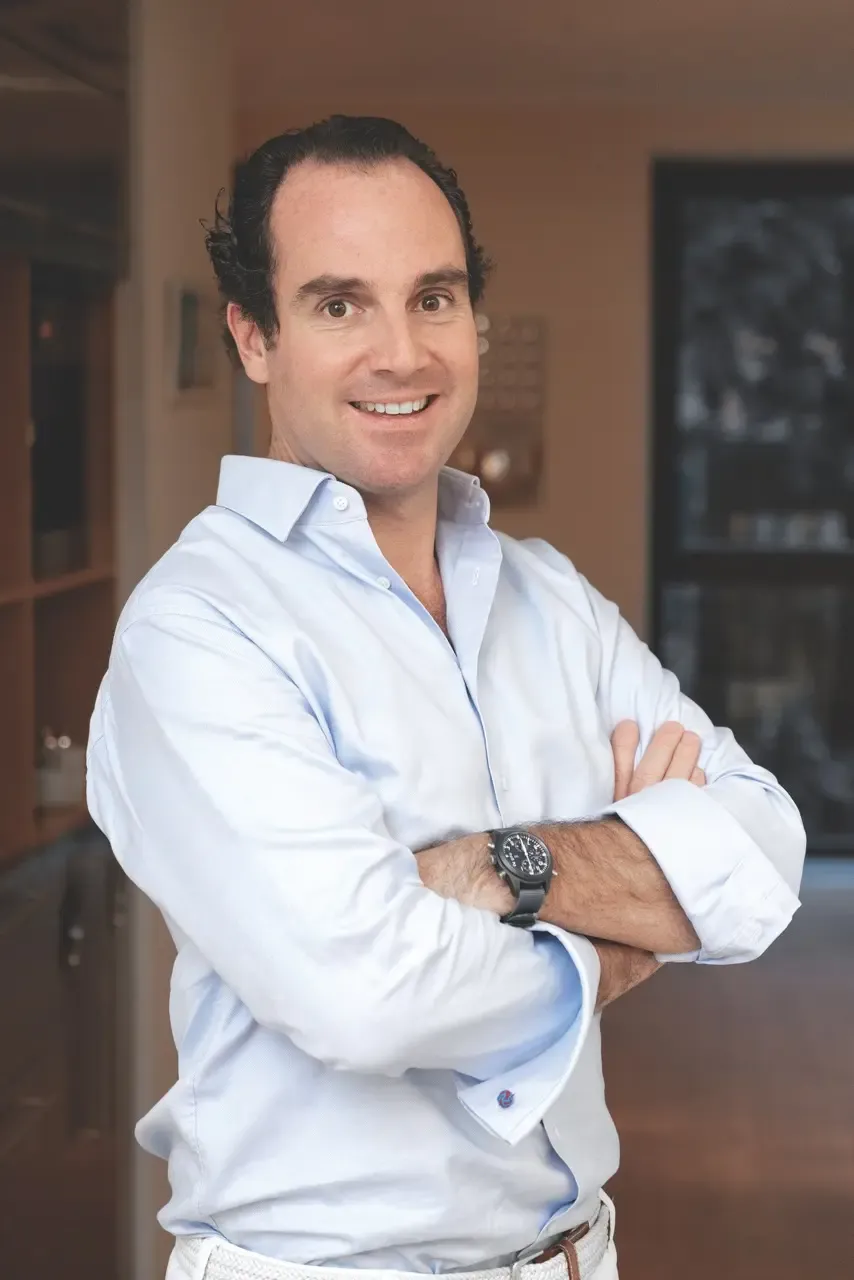
© Marc Oeder
- München & Umgebung
- Aesthetic Surgery & Dermatology
Dr. med. Anna-Theresa Lipp
PANTEA – Privatpraxis für Plastische & Ästhetische Chirurgie und Lipödem-Chirurgie
Services
Finally light through life
Right in the heart of Munich, just a few steps away from the town hall, there is a place that means hope for many women: the practice of Dr. Anna-Theresa Lipp. Here, the dedicated specialist in Plastic and Aesthetic Surgery helps patients suffering from a disease that has long been misunderstood - the so-called lipedema, a chronic and usually progressive disease of the fatty tissue that almost exclusively affects women. Characteristic of lipedema is a disproportionate increase in fat on the legs and/or arms, which should not be confused with general weight gain. The abdomen is usually flat, the waist narrow. The affected areas of the body are often pressure-sensitive, hurt even with light touch, and patients report a constant feeling of tension or heaviness in the legs. An increased tendency to bruises (hematomas) is also typical, without any externally visible injuries being necessary. It is important not to confuse lipedema with other diseases such as Obesity to be confused with lymphoedema. While obesity means a general increase in fat throughout the body, the lipedema is limited to specific regions. Lymphoedema, in turn, is due to fluid retention, whereas in lipedema the fat tissue itself is affected.
In Germany, it is estimated that about 10 to 15 percent of all women are affected by this disease, which corresponds to a number of around four to six million affected individuals. However, the number of unreported cases is likely higher, as lipedema is still often not recognized or mistakenly classified as obesity - even by medical professionals. "Many of my patients only receive their diagnosis after a long period of suffering," reports Dr. Anna-Theresa Lipp, owner of PANTEA, the leading center for lipedema surgery.
Dr. Lipp's commitment to this condition is not only based on medical interest, but more on her ability to empathize with patients as a former sufferer. "You simply build a different level of trust when patients realize you were in the same situation and have healed from it, emerging with newfound self-confidence," says the doctor. Born in Salzburg, Dr. Lipp came to Munich to study medicine, initially preferring psychiatry or forensic medicine as specialties until she entered the field of surgery and discovered her passion for the craft and operating. As fate would have it, she was working as an assistant doctor in plastic-aesthetic surgery when she received her own lipedema diagnosis. Staying in the field and dedicating her professional life to this disease was therefore the logical consequence for the dedicated physician.
Since 2016, she has been one of the leading voices in the field of lipedema treatment, giving lectures at home and abroad, supported by scholarships from the USA, fostering research, and now conducts important basic research in her family lab with her parents, both emeritus professors of molecular biology. Dr. Lipp: "The exact cause of lipedema is unfortunately not yet fully understood. There are indications of a genetic predisposition, as familial clusters can be observed." Hormonal influences also play an important role, as the disease often occurs in life phases with hormonal changes - such as during puberty, during pregnancy or in menopause. And Dr. Lipp knows after ten years in the research field that the disease behaves similarly to a benign fat tissue tumor (a so-called lipoma) - neither by a diet still through sufficient movement it will disappear. However, if it is comprehensively removed surgically, then one can be sustainably free from it.
"You build a different relationship of trust when the patients realize that you have been in the same situation, have healed from it, and emerged with new self-confidence."
Dr. med. Anna-Theresa Lipp
Treatment of lipoedema
Medically, lipoedema is now recognized as an independent disease. But despite this recognition, there are still uncertainties in practical care - especially with regard to cost coverage, particularly when it comes to surgical measures such as liposuction (liposuction). And this is only covered by health insurance in certain cases, specifically from stage III and under very specific conditions. "In my view, a real deficit. Lipoedema is a condition with a high physical and psychological burden for those affected. An early diagnosis and a multimodal therapy concept are crucial to sustainably improve the quality of life of patients. A condition that health insurance companies could demonstrably positively influence," says the doctor.
Nevertheless, around 700 women make their way to Dr. Anna-Theresa Lipp's elegant private practice annually. With a team of six other doctors - specialists in plastic-aesthetic surgery, Gynecology and visceral surgery - they accompany their patients from the first consultation to surgery and aftercare, offering them care at the highest level and with the latest technologies. Surgery is performed in the IATROS affiliated clinic with medical care around the clock, and in the background, her husband Markus Lipp, as an investor and business partner, takes care of the economic concerns of the practice. The commitment and care for the patients and the team is a heartfelt concern for both as family entrepreneurs and makes a big difference from other clinics or practices.
Conservative therapies for lipedema
Before surgery is performed, patients must give conservative therapies a chance - these include regular manual lymphatic drainage, wearing medical compression stockings, exercise and physiotherapy as well as supportive psychological care. Very important: Lipedema cannot be treated by classic measures such as diet or Sport curable, although accompanying weight reduction may be advisable to alleviate symptoms. Even very thin patients can suffer from lipedema - all too often the complaints of normal-weight patients are not taken seriously. Dr. Lipp even cautions here: "Many patients, due to ignorance, resort to radical diets and thereby fall into an eating disorder and malnutrition. However, lipedema has nothing to do with calorie intake." Unfortunately, the only way to permanently reduce pathological fat accumulation and thereby achieve a sustainable improvement in proportions is through surgery - namely liposuction.
In contrast to aesthetic liposuction, lipedema liposuction is more extensive and comprehensive and is only performed under general anesthesia under inpatient conditions. Why? "With lipedema, you have to take a 360° approach. This means, for example, that the entire leg must be suctioned circularly, which practically never happens in one session. On average, you have to reckon with two to three operations," explains the specialist. Her advice: The earlier the patient comes, the better the result, because the lipedema is not yet so advanced and the skin retracts better on its own. New techniques of innovative body contouring methods, such as intraoperative radiofrequency therapy, ultrasound treatments, or plasma therapies, also continuously improve the treatment and significantly help with the aesthetic component. "Anyone who has to pay so much money themselves - without help from statutory health insurance - can also expect that we always try to achieve the best possible result for shape and quality of life, in addition to being pain-free," Lipp is convinced.
The earlier the patient comes, the better the result will be, because the lipedema is not yet so advanced and the skin retracts better on its own.
And what can the patient expect after the procedure? "In addition to individual and tailor-made compression garments, which must be worn day and night for at least six weeks, as well as regular lymphatic drainage by our specialist staff, the ladies are delighted after the operation with a noticeable lightness in the treated limbs. The heaviness and the pain are immediately gone - and stay away," explains Dr. Lipp. Of course, a reputable medical practice cannot make any promises, but patient satisfaction and long-term results speak for Dr. Lipp. "With our PANTEA method for volume reduction, you usually lose eight to ten percent of your own body weight in pure fat per procedure. In hardly any discipline of our field do you feel greater gratitude from patients - and you have the feeling of having helped. This feeling is simply wonderful and encourages me and my team every day anew to do our best in lipedema surgery - for our patients." For a light and literally carefree life.




















